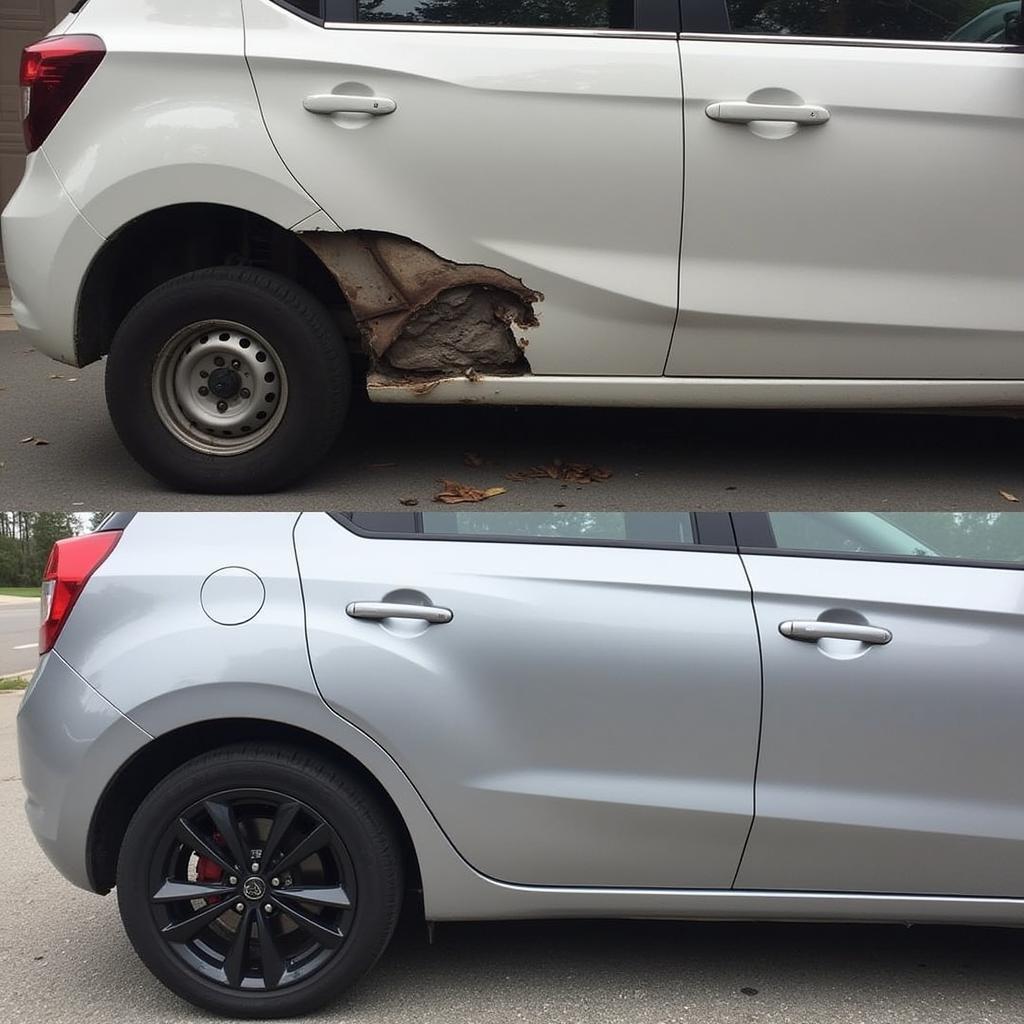A faulty car rev counter can be more than just an annoyance. Understanding Car Rev Counter Problems is crucial for maintaining your vehicle’s performance and preventing potential damage. This guide will delve into the common causes, diagnostic procedures, and solutions for rev counter malfunctions.
Understanding the Rev Counter
The rev counter, also known as the tachometer, displays your engine’s speed in revolutions per minute (RPM). It provides valuable information about your engine’s workload and helps you shift gears efficiently. A malfunctioning rev counter can signal underlying issues that require immediate attention. Did you know that ignoring a faulty rev counter could lead to more serious engine problems down the road?
Common Car Rev Counter Problems
Several issues can cause your rev counter to act up, from loose wiring to faulty sensors. Some common problems include:
- Erratic Needle Movement: The needle jumps erratically or fluctuates even when the engine speed is constant.
- Sticking Needle: The needle gets stuck at a certain RPM or doesn’t move at all.
- Intermittent Failure: The rev counter works sometimes and fails at other times, seemingly randomly.
- Complete Failure: The rev counter doesn’t work at all.
If you’re experiencing any of these issues, don’t hesitate to diagnose the problem. You can check out this article about car brake problem diagnosis for some tips on car troubleshooting.
Diagnosing Car Rev Counter Problems
Diagnosing a rev counter problem requires a systematic approach:
- Visual Inspection: Check the wiring and connections to the rev counter for any loose or damaged wires. Sometimes, a simple loose connection can be the culprit.
- Check the Fuses: Inspect the fuses related to the instrument cluster. A blown fuse could be the reason for the malfunction.
- Crankshaft Position Sensor: A faulty crankshaft position sensor is a common cause of rev counter problems. This sensor provides the engine speed signal to the ECU, which in turn feeds the information to the rev counter.
- Instrument Cluster: In some cases, the problem may lie within the instrument cluster itself. A faulty circuit board or a loose connection within the cluster can cause rev counter issues.
Sometimes, a car’s history can contribute to its problems. Read more about whats the problem with selling salvage title cars.
Solutions for Car Rev Counter Problems
Once you’ve identified the source of the problem, the next step is to implement the appropriate solution. This could involve:
- Repairing or Replacing Wiring: If damaged or loose wiring is found, repair or replace the affected wires. This is often a simple fix.
- Replacing Fuses: Replace any blown fuses related to the instrument cluster. Always use the correct amperage fuse.
- Replacing the Crankshaft Position Sensor: If the crankshaft position sensor is faulty, replace it with a new one. This is usually a straightforward process but may require specialized tools.
- Repairing or Replacing the Instrument Cluster: If the problem lies within the instrument cluster, it may need to be repaired or replaced. This can be a more complex and costly repair.
Are you looking for reliable cars? Check out cars with least problems 2013 for some ideas.
Expert Insight
“A fluctuating rev counter is often a sign of a failing crankshaft position sensor,” says John Miller, a seasoned automotive electrical engineer. “This sensor plays a crucial role in engine management and a faulty one can lead to a variety of issues, including misfires and reduced fuel efficiency.”
“Don’t overlook the basics,” adds Susan Davis, a certified master technician. “A simple visual inspection of the wiring and fuses can often save you time and money.”
Dealing with car title issues? This article on alabama rebuilt car title problem may be helpful.
Conclusion
Car rev counter problems can range from minor inconveniences to indicators of significant engine issues. By understanding the common causes and diagnostic procedures, you can effectively troubleshoot and resolve these problems. Don’t let a faulty rev counter put your vehicle at risk. Remember, regular maintenance is key to preventing many car problems. Contact AutoTipPro at +1 (641) 206-8880 or visit our office at 500 N St Mary’s St, San Antonio, TX 78205, United States for expert assistance. Having problems with your Huntington bank debit card? Find out more about huntington bank debit car problems.






Leave a Reply